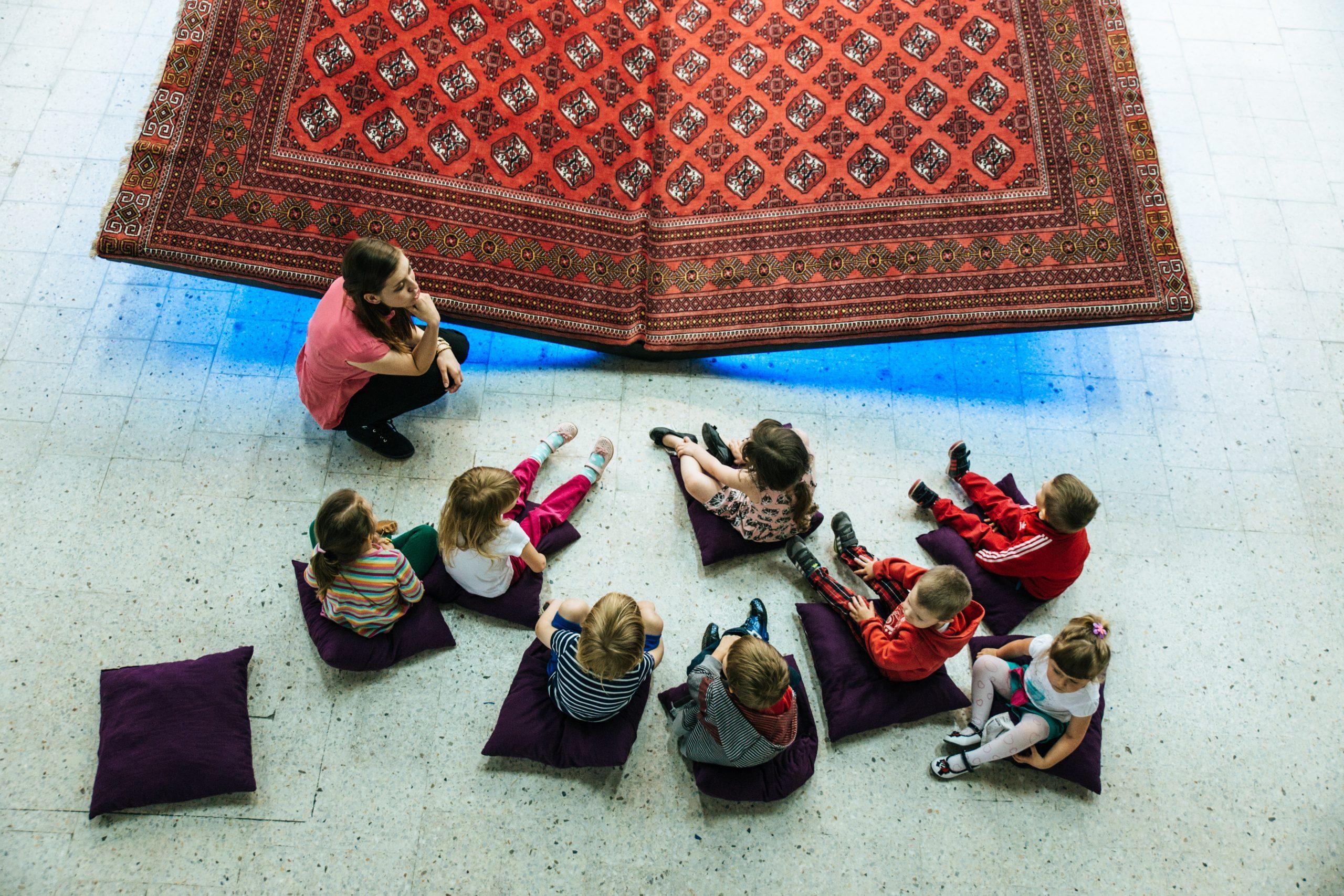
Museums are tangible history. If you are addicted to the past, if you know the significant events of the past centuries or even millennia, and if you desire to pass on this knowledge to others, you may be destined to be a museum educator. Sounds good? Read our article and find out everything about working in museum education.
What does the museum educator do?
Museums tend to open up more and more to the “public.” The museum educator’s work can be seen in this context. They welcome groups of different ages, classes, or families and give them a playful museum lesson, showing them the exhibitions in a way they have never seen before. It sounds very mysterious, but what it really means is that a museum educator uses cooperative methods to deepen the knowledge that would be harder to acquire in a simple museum visit. Each lesson is accompanied by a craft or drama activity. Lessons are almost always limited to a particular section of the exhibition, so less knowledge can be explored in detail at a time.
What are the job duties?
Museum educators usually have a discussion about what the current exhibition is about. They also collect trivia and other information from the guides and organizers, which they can then pass on to the children. They then enrich the knowledge of the members of the group in various playful ways. For example, museum educators can present the information in a story if the audience is made up of children. They can also dress up in costumes and act out a scene related to the lesson’s theme (for example, about a particular historical period or person). For this, the children can use the tools prepared by the museum educators.
After the classes, museum educators usually spend the rest of the day helping to organize new exhibitions. Nowadays, no exhibition is complete without so-called “interactive” elements, which also help to make it easier to understand. They can also write educational booklets and brochures and play an important role in developing museum education concepts and programs. Family days are often organized at weekends, which they also prepare and run.
Seems to be a really fascinating job? If so, maybe it’s high time to apply for a museum education job?
What qualifications do you need for the job?
People can do this work with different qualifications. Some people have a degree in art history or museology, but many universities offer specific courses in museum education. Moreover, many people with teaching qualifications are also working in the profession.
What are the qualities that are essential for this job?
The most important quality is empathy. It is necessary to know the abilities of all age groups and to prepare and deliver the sessions accordingly. The recipe for the profession is this: take a good dose of creativity, mix it with a pinch of patience, add three spoonfuls of empathy and then sprinkle perseverance on top.
What are the challenges of this job?
The biggest challenge is when the group has the wrong attitude. Some children show a high level of passivity, but the teacher insists on drama education nevertheless. Nothing is worse than a group of kids in medieval costumes who don’t want to “play” with you. In this case, you need a lot of creativity to improvise a new lesson concept.
It is also worrying that the use of smartphones among students is spreading faster and faster. It often makes it challenging to keep their attention. In addition, the rise of social media is making teenagers even more impatient because too much information flows too fast.
Advice for those preparing for this career
You’re sure to have a lot of fun when you step onto this track. It will give you so many wonderful moments when bright-eyed children or satisfied families thank you for the program you have created. You should know, however, that there are obviously not as many museum educators as there are bakers, for example. It’s hard to get into a museum, so try to get some practical experience as soon as possible to get the best job prospects in the profession. You need to take on as much as you can while you’re still at university. Even if you get a degree, if you don’t have any practical experience, you’ll have a hard time. If, for example, you see that a museum has no program for the night of the museums, you have to go there, check with them, and work out a program or two for free. If the school you are going to expects practical work from you anyway, make sure you spend it actively, not just getting a signature. True, it’s more convenient, but practical knowledge is worth a fortune. Learn, strive, make your dreams come true, and become a museum educator!
Image Credit.
Leave a Reply
You must be logged in to post a comment.